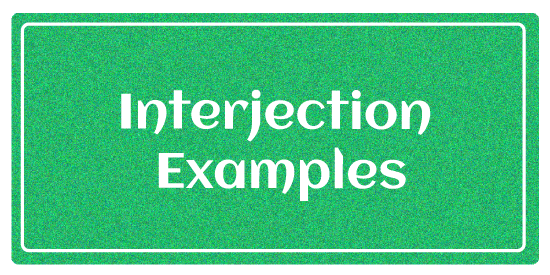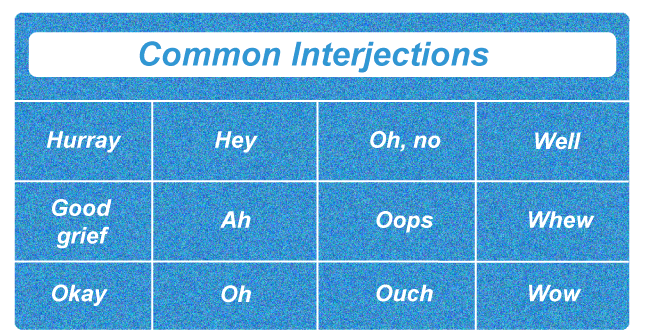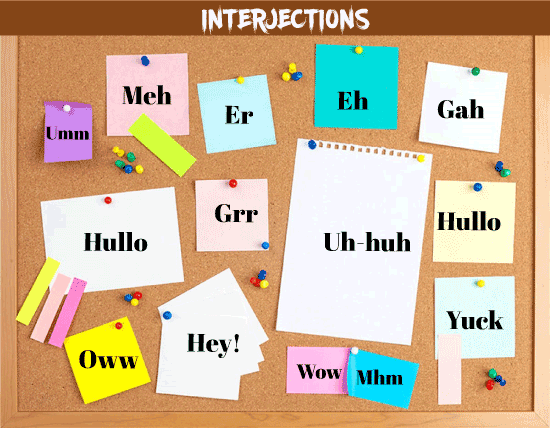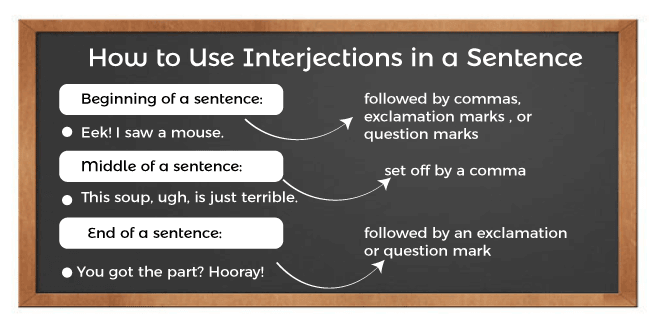Interjection ExamplesThere is one part of speech that is not like the verbs, nouns, pronouns, adjectives, or the rest. However, they do not help you learn word relationships, and they serve no grammatical purpose. Do you want to learn more about this fascinating group of words? This article explains what interjection is and why they are so unique. 
What exactly is an interjection?A term, phrase, or statement that conveys emotion, meaning or feeling is referred to as an interjection. These expression words come before punctuation marks, which are usually, although not always, exclamation points. As an example: Rats! My research article is overdue ! This expression word does not imply that there are rats in the area. Instead, it conveys disappointment and anger at missing a deadline. Whoa, this view is incredible ! In this case, you're not saying "whoa" to pacify. It rather expresses surprise at how beautiful the vision is. List Of Interjections
Examples of InterjectionsHere are some examples of Interjection:
Interjections can be nouns or noun phrases. To respond to a circumstance, nouns are used as interjections. Here are some examples:

Interjections can be made up of short clauses.

Interjections can be made with sounds.
Sentences with Interjections 1. Ah> Expressions of delight, realization, or surprise . Ah, I forgot Billy was out of the city for a few days . 2. Alas> An expression of sorrow, pity, or worry . Alas, my financial state has deteriorated . 3. Dear> Used to express surprise, astonishment, or compassion . Oh, dear! That sounds terrible . 4. Eh> Used to request that something be replicated or explained in order to induce agreement . Eh! What was it? That doesn't make sense . 5. Er> Expressing apprehension . Er, I'm not confident you have that one entitlement . 6. Hello> It is a way to greet . Hello there, Steve! How are you doing currently ? Let us have a look at some of the interjection examples in sentences ;
With these interjection examples, you'll be a pro at this part of speech in no time. These words and phrases assure to elicit emotion and demonstrate cognitive thinking in conversation or informal writing. 
When Should You Use Interjections?Interjections are most commonly used in casual (everyday) speaking or writing. They are used in writings to showcase discussion in dialogue or narration. Interjections are, by definition, informal. As a consequence, informal language, they must be avoided. This implies they should not be used in formal or academic speech or writing. Thus conclusively, To summarize, here's an interjection :
Interjections can be useful, you know! Just a smidgeon of personality and feelings - and wham! Your writing becomes more interesting as a result. So use these for capturing (and keeping) your audience's attention.
Next TopicInterjection Exercises
|
 For Videos Join Our Youtube Channel: Join Now
For Videos Join Our Youtube Channel: Join Now
Feedback
- Send your Feedback to [email protected]
Help Others, Please Share










